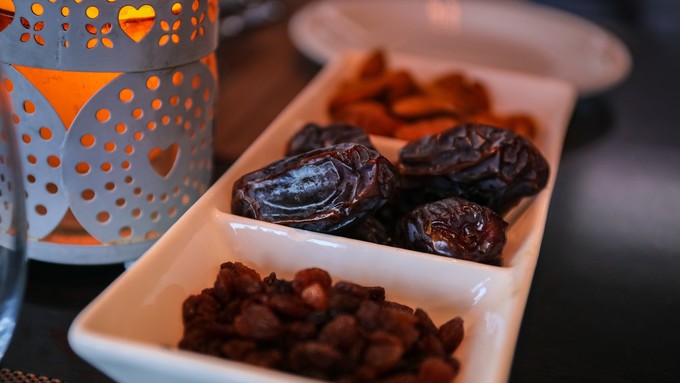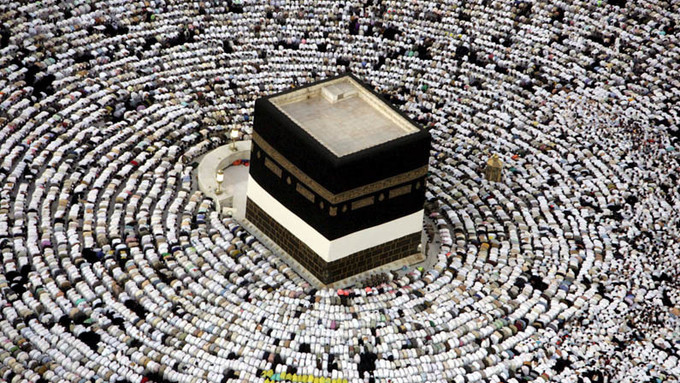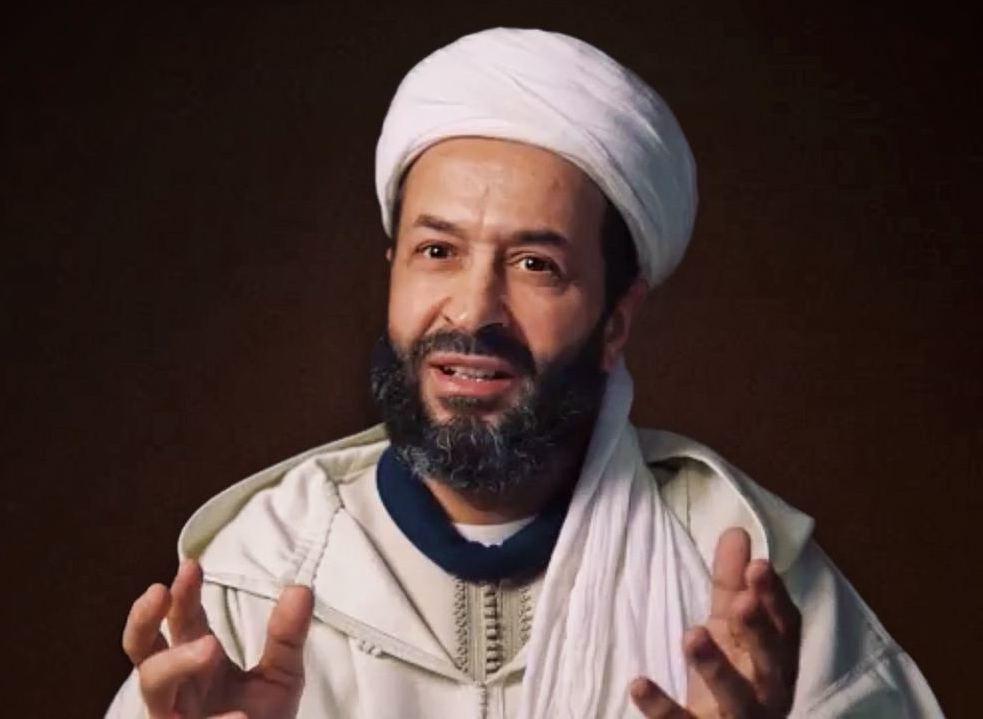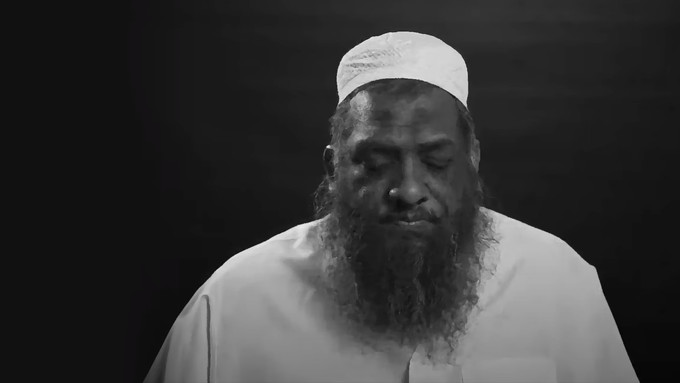Feeling Challenged? Stay Steadfast in Patience
[The following is a transcript of a lecture by Shaykh Mokhtar Maghraoui. It contains minor modifications from the spoken word for the purposes of readability.]
Allahumma, ya Rabb, ij’alna ‘andika min al-mukhlaseen, Ya Rabbi, Ya Kareem. [O Allah, O Lord, make us unto You among the specially selected ones. O Caretaking Lord, O Infinitely Generous!]
Surat al-‘Imraan: The Surah of Sabr
A brief summary about what we have recited tonight. I underline: very brief. It will not in any way do justice to the wonderful meanings and divine words with their meanings contained in what we recite [of the Qur’an]. Yet, we ask Allah subhanahu wa ta’ala to grant us the baraka of what we read even though we may not correctly focus on every meaning that is contained. For indeed we are not that favored, I would say, that we absorb every meaning contained in every word. Sometimes many of us don’t absorb even the general meaning, let alone the detailed. May Allah forgive us. May Allah forgive us our shortcomings and our inabilities and our ghaflah [heedlessness] and our forgetfulness. May He subhanahu wa ta’ala grant us the blessing of what we read even though we do not do close to justice to His words, subhanahu wa ta’ala.
We finish Surat al-‘Imraan and we begin Surat an-Nisaa, and as you perhaps noticed -- many of you or few of you who were trying to involve your minds and hearts in what was recited -- perhaps one would summarize Surat al-‘Imraan in one way as “Surat as-Sabr.” I feel very strongly about the virtue of sabr [faithful patience] when one reads through Surat al-‘Imraan. And as Allah subhanahu wa ta’ala instructs us what to do and what not to do, He instructs us about the events that happened in the time of Rasulullah (ﷺ) and before that. And then He reminds us of the challenges that Rasulullah (ﷺ) and his companions faced, and the challenges that we face, are challenges also from those who reject – who reject – the word of God, the word of Allah subhanahu wa ta’ala as light for mankind, whether those who are mushrikoon [polytheists] or those who have been given the Book before us. That theme is repeated in Surat al-‘Imraan time and again.
Persevere Patiently in What is Right
Within that theme of facing challenges and difficulties and hardships from those who are mushrikoon and from those who have been given the Book from before us (amongst them those who reject Allah subhanahu wa ta’ala and reject al yawm al akhir [the Last Day] and reject the message of Rasulullah (ﷺ)) -- of those who do that, Allah subhanahu wa ta’ala instructs us in this midst to be patient. To continue to struggle to be patient. We will hear and we will see so much harm and so much pain from those who have been given the Book before us – that is, some of them – and from those who are mushrikoon. And the command is that we persevere patiently in our taqwa, in our iman, in our values, in our morality, in our goodness, in our tawhid, in our pride of being a muwaahid [one who affirms unicity] of Allah ‘azza wa jall, in our certainty of being on the right way that Allah subhanahu wa ta’ala loves.
“Idha tublawwuna” [“If you are tested,”] – Allah ‘azza wa jall says so much of that. And towards the end:
لتُبْلَوُنَّ فِي أَمْوَالِكُمْ وَأَنفُسِكُمْ وَلَتَسْمَعُنَّ مِنَ الَّذِينَ أُوتُوا الْكِتَابَ مِن قَبْلِكُمْ وَمِنَ الَّذِينَ أَشْرَكُوا أَذًى كَثِيرًا ۚ وَإِن تَصْبِرُوا وَتَتَّقُوا فَإِنَّ ذَٰلِكَ مِنْ عَزْمِ الْأُمُورِ ﴿١٨٦﴾
[Ye shall certainly be tried and tested in your possessions and in your personal selves; and ye shall certainly Hear much that will grieve you, from those who received the Book before you and from those who worship many gods. But if ye persevere patiently, and guard against evil,-then that will be a determining factor in all affairs. (3: 186, trans. Yusuf Ali)].
[This is] about the time of Rasulullah (ﷺ) and the future; “latasma’unna,” “latublawunna,” i.e. you will be afflicted in the future, you will hear in the future. From those who have been given the Book before you and from those who commit shirk [partnership]. You will hear and see a lot of pain, a lot of injury, a lot of harm (“katheera”). You will be ridiculed, belittled, hurt, and be deceived. And you will be dissuaded from your way of Allah, your way of Rasulullah (ﷺ), in so many aspects of life—in your very face, ways and morals. In the way you look, the way you eat, the way you are and the way you speak. You will hear a lot about that—to challenge you and to draw you away.
And He says, “wa in tasbiru wa tattaqu fa ‘inna dhalika min ‘azmil umoor” – “and if in the face of this you show sabr and you keep your taqwa,” i.e. you guard your heart and your limbs and your senses from disobeying Allah ‘azza wa jall, if you show perseverence and endurance (tasbiru) in the face of that and guard your senses and your hearts (tattaqu) from disobeying Allah ‘azza wa jall, “that is indeed a matter of those who are resolute (dhalika min ‘azmil umoor).” Not those who are weak. Those who are resolute.
Do Not Divide
Allah ‘azza wa jall tells us in the face of this in this Surah, tells us: and do not divide. Do not disperse. Do not quarrel with one another such as you are led to be divided. As a consequence of these challenges from the people that have been given the Book before and from the mushrikoon. And from the challenges of life – and the challenges are many! Not only challenges, big challenges as we perhaps perceive them at the level of international matters – nay, at the level of individual lives. Each one of us is challenged in the way we live. In the way we look. In the way we speak. In the way we eat. And so on and so forth.
And we are not to show weakness. We are not to give up our values. We’re not to give up our morals. We’re not to give up our ways. And we’re not to divide.. As Allah subhanahu wa ta’ala commands:
وَلَا تَكُونُوا كَالَّذِينَ تَفَرَّقُوا وَاخْتَلَفُوا مِن بَعْدِ مَا جَاءَهُمُ الْبَيِّنَاتُ ۚ وَأُولَـٰئِكَ لَهُمْ عَذَابٌ عَظِيمٌ ﴿١٠٥﴾
“Do not be like those who divided and disagreed after clear signs had come to them. And those will have a horrible and great chastisement and punishment.” [3:105].
Wa iyyadha billah [and refuge is found with God].
Those whose differ. On the day when faces will be lit and faces will be dark. Faces lit with iman and obedience of Allah ‘azza wa jall and the obedience of Rasulullah (ﷺ) – externally and internally, those, their faces will be lit with noor. And those who disobey Allah subhanahu wa ta’ala and His Rasul – externally or internally – their faces will be darkened, wa iyyadha billah [and refuge is with Allah]. Darkened by fear and by the punishment of Jahannam [Hell], wa iyyadha billah. Humiliation.
Allah says “Do not divide.” Do not divide, O brother, O sister, O communities! Do not. And that which leads us to be divided is our nafs [base ego-self] inside: What we like and what we don’t like. Our preferences. Our inclinations. Our attachments, to elements of wealth and of power. To the desire to be above others. The desire to be a leader. To desire to be looked high upon. The desire to be always right. The desire not to give up to anyone.
And we, because of that, “baghayan baynahum,” [division came between them] just like it happened to those who’ve been given the Book before us.
وَمَا اخْتَلَفَ الَّذِينَ أُوتُوا الْكِتَابَ إِلَّا مِن بَعْدِ مَا جَاءَهُمُ الْعِلْمُ بَغْيًا بَيْنَهُمْ ۗ
[Nor did the People of the Book dissent therefrom except through envy of each other, after knowledge had come to them (3:19, trans. Yususf Ali)].
After knowledge came to them! And the reason is not that they didn’t have knowledge – [it is] because of baghi amongst themselves. Ya’ni hadhi baghi ‘an al akhar. [We say for example,] “this one wants to have [baghi] what the other one has.” To dominate, and to subdue. That is the result of hasad, jealousy and violent envy. That’s why even brothers and sisters end up, wa iyyadha billah, in confrontational conflict with one another. Don’t do that. The reason is the nafs; giving the nafs what it wants. Until we learn to subdue the nafs – not to give it what it wants – and train it and discipline it that way gradually, we will continue to commit those violations as individual Muslims and as collective nations.
Endure All Challenges For Allah
Surat al-‘Imraan is about sabr. Be patient in the face of these hills and these challenges and these calamities. Be patient. Know that. Don’t give in. And that word of patience is repeated in many different places and finally at the end of this surah:
يَا أَيُّهَا الَّذِينَ آمَنُوا اصْبِرُوا وَصَابِرُوا وَرَابِطُوا وَاتَّقُوا اللَّـهَ لَعَلَّكُمْ تُفْلِحُونَ ﴿٢٠٠﴾
[O you who have attained faith, persevere in patience (isbiru); be steadfast in that patience; strengthen each other; and be Allah-conscious that you may be successful. (3:200)]
Isbiru: show patience, show perseverance, show endurance in patience. In the face of that, in the face of these challenges, in the face of these attractions in dunya. Allah talks a lot about it in the middle, in the beginning, and in the end, and how Shaytan makes the elements of dunya (of wealth and of power and all that comes with it) so attractive, so people end up selling dunya with akhira, [both] Muslims and non-Muslims.
Don’t give into dunya! Don’t give into what you and I tend to usually and like to give into. We work and we go to work and we go to school – let me be very direct – for what? Usually for more of those things. To lead us to despise others who challenge us in that. To be in confrontation with them. And then to make it a philosophy of life. And then as nations to subdue other nations, for more of the resources of dunya. We call them economic resources and this and that and we give them sophisticated names. It is dunya. It is simply dunya.
Therefore anyone of us that complain about those, for example, in political leadership, let’s say, who commit these violations. Just think about it for a moment, because you are not there. What if you were there? Next, look at the situation in which I and you are. And how are we? Are we thankful for what we have? Are we patient when we don’t have? Do we seek for more? Do we fight for more? Do we hate others for more?.
We do. Those that are in leadership and end up to be tyrannical and oppressors and unjust and world-oriented, dunya-oriented, they were before that like you and me. And it is then that it was nurtured. And Allah knows who will do what when given the opportunity.
So Allah ‘azza wa jall says “isbiru wa saabiru.” Be patient in the face of this. Don’t give into that. And because people around me do what they do and have what they have, ‘I’ do what they do and and ‘I’ have what they have, and I want to have what they have, and buy what they buy, and….isbiru! Isbiru [be patient.] Don’t do like that! Don’t buy what they buy, don’t….don’t. Sabr is in that. Not only [does the ayah say] “isbiru” [be patient], but [then] “saabiru.” “Saabiru” is if the other side that is doing wrong is showing patience in doing wrong – because some people wa iyyadha billah are patient in doing evil. They are very patient in doing evil and in doing wrong and in being on the wrong side. Allah ‘azza wa jall says “Saabiru.” That is,“Show ṣabr in the face of their sabr.” In other words, your ṣabr should override their ṣabr. Because your ṣabr is for Allah ‘azza wa jall. For morality. For tawhid. For goodness. For that which is very, very valuable.
“Wa ṣaabiru wa rabitu.” Ribat is to be steadfast in that which you are patient for. And ribat is also ribat fi sabeelillah ta’ala [steadfast endurance in the path of Allah Most High] when that is properly called for in the rules of shara’ [divine law]. Rabitu. And like one scholar, I think Yahya ibn al-Mu’adh (rahimahu Allah ta’ala) said, “Take your heart as the battlefield. Shaytan as the enemy. Shaytan as the enemy. And let your ribat be upon your heart, in the field of your heart, against Shaytan. And let your weapon be dhikr of Allah subhanahu wa ta’ala.” Muraabit [Firmly stationed]. Muraabit lillahi subhanahu wa ta’ala [Firmly stationed for Allah, Perfect and Exalted], in this way also. Most importantly. I have to guard my heart all the time! And I have to be patient in doing that. Not let my heart slip and feel and entertain thoughts and hopes and desires that are ultimately destructive to me, in this dunya and in akhira.
Every Soul Shall Taste Death
[Finally,] it is never enough of emphasis about this point. I pray that you and I will have quloob that are awake and not dead. That when these words are shared with us, we take them to heart very seriously. That we ask Allah ‘azza wa jall to make us aware – every hour, every instant! – aware of Him ‘azza wa jall. And we have to show ṣabr in that. Anyone of us can die at any moment.
Allah reminds us of that in this Surat al-‘Imraan also, toward the end. You will die, after all. You will die:
كُلُّ نَفْسٍ ذَائِقَةُ الْمَوْتِ ۗ وَإِنَّمَا تُوَفَّوْنَ أُجُورَكُمْ يَوْمَ الْقِيَامَةِ ۖ فَمَن زُحْزِحَ عَنِ النَّارِ وَأُدْخِلَ الْجَنَّةَ فَقَدْ فَازَ ۗ وَمَا الْحَيَاةُ الدُّنْيَا إِلَّا مَتَاعُ الْغُرُورِ ﴿١٨٥﴾
[Every soul shall have a taste of death: And only on the Day of Judgment shall you be paid your full recompense. Only he who is saved far from the Fire and admitted to the Garden will have attained the object (of Life): For the life of this world is but goods and chattels of deception (3:185, trans. Yusuf Ali)].
He reminds us: “Every soul will taste of death.” That’s the outcome. Young and old.. Baby and strong and old. Man and woman. You will taste death. That’s the ultimate outcome. Then you will be held to account with full payment on the Day of Resurrection. [The ayah mentions] the one who is shaken away from Hellfire and made to enter Jannah is the one who is successful. Look what Allah says: “man zuḥziḥa ‘an in-nar.” It gives the impression that the human being is lovingly, ignorantly and stubbornly running towards Jaḥannam [Hell]. Running towards it. And Allah ‘azza wa jall says “man zuḥziḥa ‘an in-nar.” “Zuḥziḥa” meaning there is an act here of strength to pull him away. Away from Jaḥannam. And we invite ourselves to Jaḥannam, wa iyyadha billah, by indulging in dunya, by disobeying Allah ‘azza wa jall, by disregarding the message of Allah subhanahu wa ta’ala, by following those who have no values, those who are evil, those who don’t care. And he is made to enter Jannah (“udkhilu,” not “dakkhala.”) Human beings, most of us are like running away from Jannah with desire into Jaḥannam, wa iyyadha billah. And it is a rahmah of Allah, therefore, that pulls away from that foolishness and that ignorance.
People die every day, my dear brothers and sisters, young and old…at any time, at any time. What if it comes upon me or you my brothers and sisters and we are in ghaflah [heedlessness]? And we are in a state with our minds and hearts unfocused on Allah ‘azza wa jall, but on job and dunya and wealth and power and this and that problem, and this and that – what if death comes that way? While we are in a state of ghaflah? What if, worse, it comes while we are (wa iyyadha billah) disobeying Allah ‘azza wa jall? Watching television? Imagine – watching television in itself is not ḥaraam [forbidden], some of it is ḥaraam – you die that way? Watching television? Imagine. Versus dying in dhikr of Allah ‘azza wa jall. Or in ṣalah…
My dear brothers and sisters, I advise you and myself, with the fear of Allah subhanahu wa ta’ala and the consciousness of Allah subhanahu wa ta’ala. We ask Him subhanhu wa ta’ala to give us the gift of thabaat (steadfastness). At death and steadfastness when we are faced with a challenge, a challenge that means we would disobey Allah ‘azza wa jall or respond in a way that is not beautiful, that Allah doesn’t love. Sometimes we know. Some of us know. We know – but when we are challenged, at the moment of challenge there is no thabaat. We are not steadfast on the values we know. We react spontaneously the way we are inside – and that is not thabaat. And dying: that’s a challenge. That’s a calamity. And we may not have thabaat, even though we know to say la ilaha il Allah. We know and we know and we know -- but it was never in the qalb. And thus there is not thabaat.
Closing Du’a
Allahumma inna nasaluka thabattan ‘and al-mamaat. Wa nasaluka thabata ya rabbi ‘and al-balaa’. Wa nasaluka al-‘afuu wa al-a’afiyyah ya rabb wa in ibtalaytana farzuqna sabra waruzqa ridhaa. Innaka lateefun liman tasha’. Innaka ‘ala kulli shay’in qadeer. Wa salla Allahumma wa sallim wa baarak ‘ala Sayyidina Muhammad wa ‘ala aalihi wa sahbihi ajma’een. [O Allah, truly we ask You for steadfastness upon dying. And we ask You for steadfastness, O Lord, upon encountering all types of challenges. And we ask You for pardoning and safety, O Lord. And if you test us, provide us with sabr and make us pleased with Your decree. Truly You are lateef (subtly gracious) to whom You please. Truly You alone have power over all things. O Allah, send your prayers and peace and blessing upon our leader Muhammad and upon all his family and companions. Ameen].
Academic Related Articles

5 Practical Steps To Get You Ready for Ramadan
As Ramadan is less than a month away, we might feel we often haven't done enough to prepare for it. Here are 5 things we can do right now during Shaban to make sure that we get the most out of Ramadan. The Prophet (Peace & Blessings upon Him & His Family) supplicated,” O Allah give us the blessings of Shaban and give us the treasure of Ramadan.”

Hajj at Home: Kindling the Spirit of Arafah
Even if we are not on Hajj this year, our situation is no different. We navigate through the complexities of our daily life, immersed in the never-ending responsibilities of work and family, inundated with the intrusions of technology and social media into every minute of our lives, moving from place to place and idea to idea.

